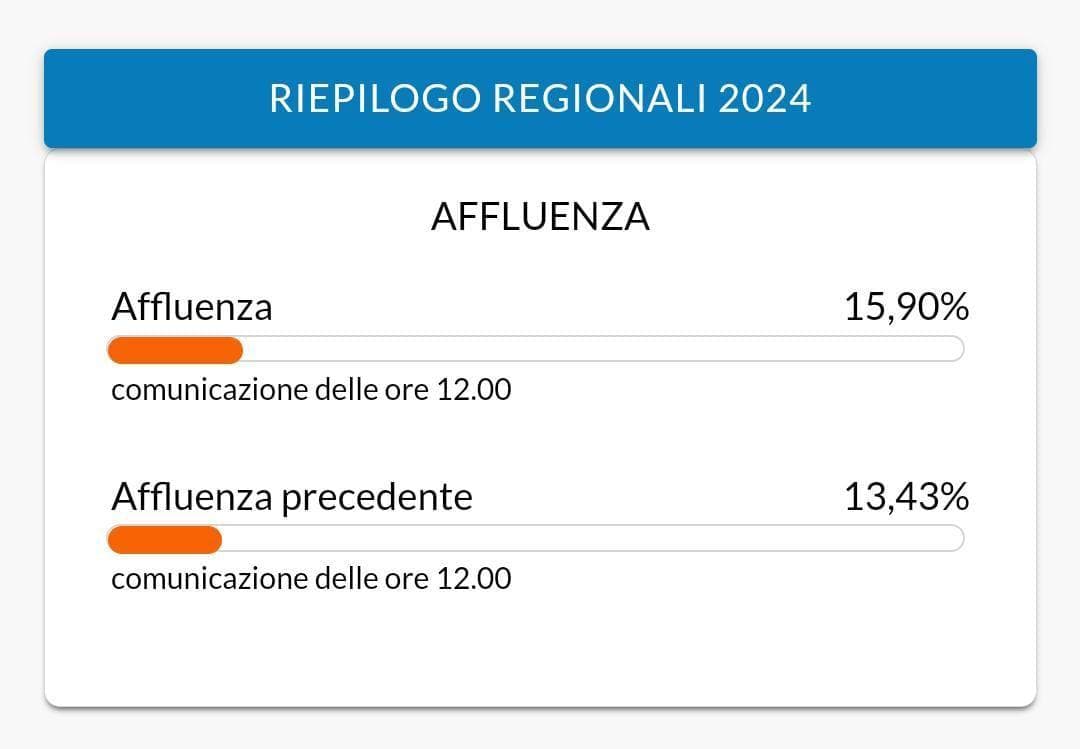Politics
Regional Abruzzo: turnout 12

It will remain a challenge until the final vote. And the outcome of the regional elections in Abruzzo currently appears completely uncertain. Polling stations are open from 7 a.m. and voting continues until 11 p.m., when counting begins immediately. Turnout is the real balance. The number increases compared to the 2019 vote. According to data published on the Eligendo website, at 12.40 p.m. 15.9% of eligible voters went to the polls, compared to 13.40% in the last elections (more precisely over 2% in comparison to 2019). +2.47%).
THE SPECIAL ELECTIONS IN ABRUZZO – RESULTS
Turn out
In detail, at 12.40 p.m. (Source Eligendo), in the province Chieti (calculated in 437 out of 460 sections) the voter turnout was 14.82% (in 2019 at the same time it was 13.08 in all sections); ToEagle (400 of 405 sections) is 16.72% (compared to 12.96); To Pescara (all sections) is 16.13% (previously 14.13); To Teramo (all 373 sections) is 16.19 (in 2019 13.46).
The vote in Abruzzo also has national repercussions: another test after the one in Sardinia to weigh the internal balance between the governing parties, also with a view to the European elections.
The candidates
There are only two candidates running for president: the outgoing governor Marcus Marsilio for the center-right, e.g Luciano D’Amico Supported by the so-called broad field, the center-left alliance, which extends from the Democratic Party to the 5 Star Movement to the former Terzo Polo di Azione and Italia Viva.
For Marsilio, the outgoing governor and friend of Prime Minister Giorgia Meloni, it would be a validation after his victory five years ago. D’Amico, former rector of the University of Teramo, is supported by all the opposition: from the Democratic Party to the 5 Star Movement Renzi to the action of Carlo Calenda to the Green-Left Alliance.
Voting Guide
The voter must appear at the polling station with a valid ID and voting card, reminds the Abruzzo region. If you do not have the card or have lost it, you can also request it on election day from the election office of the municipality in which you are registered on the voter lists.
You can vote for a presidential candidate, but the vote does not extend to the lists associated with him; vote for a list, and the vote also extends to the presidential candidate associated with it; Vote for a presidential candidate and one of his affiliated lists.
The voter may express one or two preferences for the candidates for the office of city councilor on the elected list by indicating the last name or, in the case of homonymy, the first and last name. If it expresses two preferences, they must be of different genders (for a woman and for a man or vice versa, in any case from the same list); otherwise the second preference is null and only the first remains valid.









